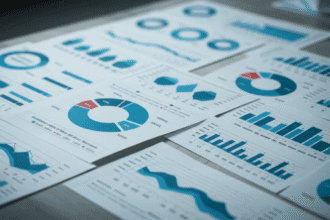Animal Farm’s Squealer Pig was always proficient at rattling off compelling statistics on productivity, output and more. And from the lofty numbers quoted, appearances seemed quite favorable. Yet statistics can certainly be used to misrepresent reality, and that’s why the data driven executive always gives them a second and maybe third review.
Animal Farm’s Squealer Pig was always proficient at rattling off compelling statistics on productivity, output and more. And from the lofty numbers quoted, appearances seemed quite favorable. Yet statistics can certainly be used to misrepresent reality, and that’s why the data driven executive always gives them a second and maybe third review.
The Financial Times recently reported that a 5% rise in US retail sales data “seemed to offer a ray of bright economic news.” However, further in the article, the author uncovers an ugly truth where it appears only a small minority (i.e. wealthy individuals) are actually spending, while the majority is “really very cautious”.
While the Financial Times article does a thorough job of unmasking an “improving economy” via one economic statistic, there are plenty of other media publications not doing their homework.
Getting back to Squealer pig, as a key spokesperson on comrade Napoleon’s Animal Farm, his job was to regularly make public pronouncements in all the metrics that mattered. There were daily declarations of record productivity numbers, more farm output, better living conditions etc, when in fact, to any plain observer circumstances proved quite austere. On the surface, the numbers may have looked quite good—say a stunning 50% change in the production of milk. Of course, this simply meant that three gallons of milk were produced that day instead of the usual two.
It’s quite easy to get caught up in numbers. Sadly, there are plenty of consumers that prefer an 84 month automobile warranty rather than one for seven years. In another example, a few years ago newspapers expressed outrage that the average annual pay at Goldman Sachs was $622,000, when the actual number would have been a lot lower sans CEO Lloyd Blankfein’s salary of $54.4 million!
Darrell Huff, author of “How to Lie with Statistics” has it right when he says, “Like a little dash of powder, little pot of paint, statistics are making many an important fact look like what she ain’t.”
With this in mind, it is then incumbent upon the data-driven executive to view statistics with a critical eye lest we get caught up some other modern day “Squealer’s” persuasive (mis)use of statistics.
[Paul Barsch works for Teradata, sponsor of Smart Data Collective]







